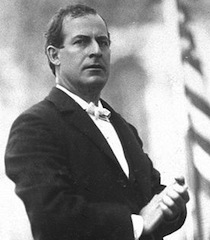Admiral Fischer
Banned
In one of the first post here, a commentator posted that the best strategy for Clay was to equivocate at first on Texas annexation, then to oppose it. I just tried that strategy on normal, and thought about it, and it makes sense. Its really the only way for Clay to finesse a victory.
In past games, I have usually come out in favor of Texas annexation at the start, and would almost always fail to carry New York and Pennsylvania and lose, though I got quite a few Clay cases of Clay prevailing in the nationwise popular vote. But Clay coming out at the start against annexation got even worse results, including results comparable to my Clay self-sabotage.
In the last game I tried equivocating, then opposing annexation. I still denounced Cassius' Clay letter and remained silent on the gag rule.
Its a mathematical issue. Clay needs 138 electoral votes to win. He will always carry Kentucky, Maryland, Connecticut, Rhode Island, Massachusetts, and Vermont, even self sabotage games, for a total of 48 electoral votes. Polk will always carry New Hampshire, Maine, Michigan, Michigan, Illinois, Missouri, Alabama, Mississippi, Arkansas, and South Carolina (delivered by state legislature), for a guaranteed 63 electoral votes. Virginia is normally close, but the only times I've seen it go to Clay on normal is in Polk self sabotage games. I've seen Clay win Indiana, including when losing, but not that often, so for strategy purposes assume Polk will carry both and will and their 29 electoral votes.
There are 275 electoral votes nominally at play, but 111 will always go to either Clay or Polk on normal, leaving 164 at the most really in play. Clay needs 90 of the these. But you can usually count on Polk getting Virginia and Indiana and their 29 electoral votes, and Clay getting New Jersey and Delaware and their 10 electoral votes. That leaves Clay with having to get 80 votes from somewhere out of 125. New York and Pennsylvania combine for 62 electoral votes,;Ohio has 23,; North Carolina and and Tennessee have 24; and Louisiana and Georgia has 16.
Clay has no path to victory without New York and Pennsylvania. The only slightly realistic shot is by Clay winning his core states of Massachusetts, Rhode Island, Connecticut, Vermont, Maryland, and Kentucky, plus New Jersey, Ohio, Delaware, Tennessee, North Carolina, Georgia, and Virginia, for 150 electoral votes. But he absolutely needs Virginia, which on normal is always close but always goes for Polk, but also Ohio, where he will lose too many votes to Birney with a hard southern strategy. And a hard southern strategy, which I've tried, is disastrous since it goes to much against Clay's earlier positions.
The problem with coming out with annexation at the start is that it makes Clay sound too radical. It seems that Clay has to be seen as treating the issue as not very important, then coming down more on the free soil side.
In the game I just tried, Clay got a 167 to 108 electoral vote victory, but he lost the nationwide popular vote, 49% to Polk for 48.8% to Clay and 2.2% to Birney. Its the only time I've seen Clay win in the electoral college and lose the nationwide popular vote, I've seen the opposite lots of times. He won New York, with Fillmore as his running mate, by 0.5% and Pennsylvania by 0.1%. The system stated that Clay's performance was better than 96.8% of the games played so far on normal.
I just followed this strategy with Clay/Frelinghuysen ticket and carried the election along with New York. Apparently I've been playing this game wrong for so long...




